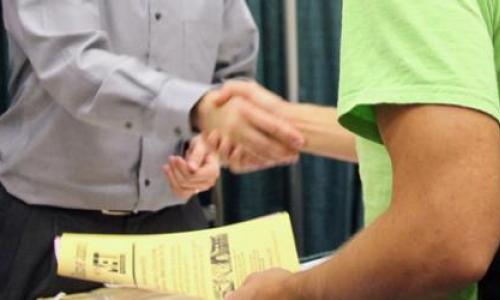
There’s no shortage of interview formats or styles that can throw even the most experienced interviewee off their game, but if you familiarize yourself with as many of these as possible, you’ll be less likely to show up unprepared. Which is why this series is here, so you can become familiar with the multitude of interview styles you could face.
As the name suggests, panel interviews are conducted by a panel or committee of anywhere from two to eight people. They are most common in larger organizations where you will be working with multiple supervisors. These interviews can be some of the most intimidating and tend to be formal, but it also gives you a better look at company culture.
The Good
-
You have the chance to appeal to several different decision makers.
-
A larger panel decreases the influence of individual preferences of bias.
-
The questions themselves will usually be similar to those discussed in other interview type articles.
The Bad
-
It can be difficult to remember the names and titles of everyone present, making follow up correspondence confusing.
-
Any answer is unlikely to please every panellist.
-
The intimidation factor is magnified.
The Helpful
-
Try to identify the leader of the group, this may be unspoken, but look for clues from the other panellists.
-
Address your answers to the person who asked them, but try to acknowledge other panellists as well.
-
Remember the importance of eye contact.
-
Don’t be thrown off if interviewers take notes while you are speaking. Good notes are essential for remembering each candidate.
-
If possible, try to find out who will be on the panel and their roles. Prepare individual questions to ask of each panelist.
-
The STAR method (Situation, Task, Action, Result) of forming answers works well here.
Potential Questions
-
Tell us about yourself.
-
Why do you think you would be a good fit for this company?
-
What do you consider your biggest weakness?
-
What traits will you bring to the job?
-
Describe an achievement that you are proud of.
Beyond the Blog
- Be sure to check out the OLC's Interview Question Database to get you prepared for any interview type!
















